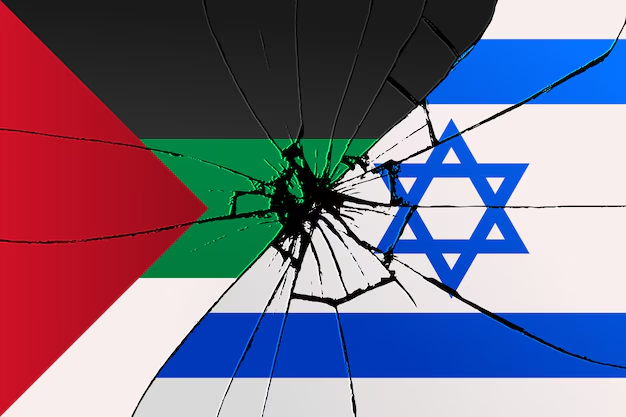Biden to Discuss Iran-Israel Tensions with Netanyahu

Due to the increasing tension in the Iranian-Israeli relationship, President Joe Biden is slated to engage in an important telephone conversation with Benjamin Netanyahu. The focus will be on recent Iranian-related missile strikes and the country’s assertive response to such provocations. This is the most appropriate dialog at this time considering that the two powers face the threat of an unstable region with many competing security interests.
In this article, first, we shall examine the facts that led to Iran’s antagonism toward Israel, explain the importance of the forthcoming meeting, and suggest its consequences for international politics.
Background: Tensions Between Iran and Israel:The Syria Crisis
Tension between Israel and Iran is complicated and can best be understood in a mix of political, military, and ideological factors. Iran has been certainly a ‘problem’ for Israel due to the country’s endless anti-Israeli politics and military assistance to elements such as Hezbollah. For the last ten years, however, these antagonisms have risen to the level where both countries have engaged in surrogate wars and skirmishes, particularly in the country of Syria
In recent days, there have been events such as missile launches that seem to have been carried out at the behest of Iranian-affiliated forces. This has raised fears over the possibility of a fuller-scale conflict. To this, Israel has promised retribution, which may cause the military situation in the region to boil over.
Why Biden’s involvement matters
Biden as President is in charge of one of the nations that are a close friend to Israel, and this is what makes him very important in any event that is likely to occur. The country has interests in safeguarding the supply of energy within that area in addition to political considerations; the US has an interest in avoiding chaos in the region. Therefore, Biden’s next conversations with the Israeli premiere concerning the situation are deemed to revolve around minimizing influence projection and seeking ways to alter the situation peacefully.
Key Objectives of the Biden-Netanyahu Discussion
Preventing Escalation: The U.S. looks to contain violence since it may cause regional instability, particularly in the Middle East, as well as involve other states within the region.
Assuring Israel’s Security: Ending the conflict as he desires does not mean Biden dismisses Israel’s right and even US support for Israel to take extreme measures when under threat.
Concerns over Nuclear Proliferation: It is also likely that the two leaders will hold a common view on the issue of Iran and nuclear weapons—looking for ways to limit the activity of Iran’s nuclear program and not encouraging armed conflict.
The Iran-Israel Conflict: A Historical Overview
The decades-old rivalry between Iran and Israel began after the 1979 Iranian Revolution, which established the current Islamic regime. Afterwards, Iran has publicly condemned Israel, rejecting the existence of the Israeli state. In addition, Iran’s connections with anti-Israel terrorist organizations, such as Hamas and Hezbollah, have been a source of concern.
Latest Updates:
Proxy Wars: Due to Iran’s backing of the Assad regime in Syria, confrontations between Israeli airstrikes and Iranian forces have become commonplace.
Nuclear Tension: Iran has always been on the radar of Israel in terms of its nuclear program, as they perceive a nuclear Iran as a clear and present danger.
Missile Strikes: The recent wave of missile strikes blamed on forces supported by Iran has increased tensions and led Israel to get ready for a counterattack.
Possible Results of the Biden-Netanyahu Meeting Hypothesis
The outcome of President Biden’s meeting with Prime Minister Netanyahu is likely to affect the future course of the Middle East diplomatic efforts. A couple of scenarios may apply regarding the outcome of the talks:
De-escalation and Diplomacy: Al Vocifera persuades Neva Iulia to contain the two countries, and both may agree to, and encourage the use of diplomatic means so that war does not break… Err, escalate so fast by resorting to military actions.
Targeted Strikes: In the event that Israel launches retaliatory strikes on Iranian assets, the already existing conflict is prone to enlarging into a full-blown regional war.
Fortifying of the U.S.’s Position: In the event of deterioration, the U.S. might be compelled to be more, even militarily, anyhow, including active discussions with Iran.
The Importance of International Participation
On the bigger scale, other nations, notably the U.S., have a responsibility to help assuage the Iran-Israel confrontational situation. European Union members, as well as China and Russia, have their own interests in sometimes damaging stability in the region, more so due to oil and its associated security.
Political Solutions:
UN Involvement: The United Nations could step into a conflict and help in negotiating a ceasefire or final peace.
Economic Restrictions: On Iran, the world can decide whether to impose sanctions or lift them depending on the behavior of Iran, which can affect its position on the issue.
Supporting Local Leadership: Countries such as Saudi Arabia and Egypt may also engage in some form of diplomacy in order to contain the violence.
Biden’s ‘Diplomatic Torque’
One of the key challenges for President Biden will be balancing US diplomatic efforts against Israel’s security interests. Whereas the US desires to avoid finding itself in any armed conflict, it also has a duty to Israel, which is under threat by Iran and its proxies. The extent to which Biden is able to perform this balance act will have a great bearing on the question of whether the United States will continue to be involved in the Middle East.
Final Thoughts:
Talking to Netanyahu might very well change the course of history of Israeli-Iranian relations. Even though the specter of military action is ever present, Biden’s efforts at diplomacy give a glimmer of hope for a resolution of tensions. How these discussions play out captures the attention of the entire globe, and with good reason, since the stakes—regional order, international piracy, and American leadership in the Middle East—are all very high.



